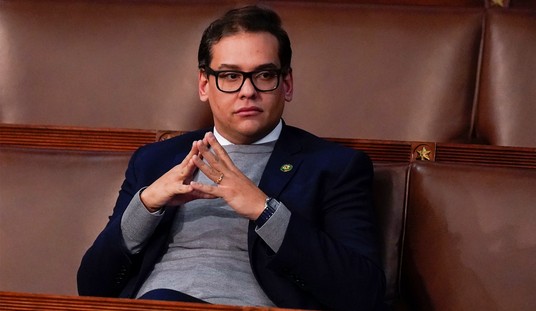Scott Gottlieb has noticed signs of improvement.
New #COVID19 cases in Louisiana show signs of slowing. pic.twitter.com/B0YGZMIV96
— Scott Gottlieb, MD (@ScottGottliebMD) April 13, 2020
Growth in #COVID19 cases: New York vs Louisiana pic.twitter.com/RbCatJFWEO
— Scott Gottlieb, MD (@ScottGottliebMD) April 13, 2020
Louisiana seemed set for a truly apocalyptic outbreak a month ago. They’ve been hit hard — 884 dead as I write this, the fourth highest total of any state in America.
But the trends lately are all good. For instance, they have about one-fifth the population that New York State has and are doing roughly the same number of daily tests per capita as New York, yet they had less than one-tenth the number of new cases yesterday. Check out this decline:
There were only 1,086 new cases reported in Orleans Parish over the last 7 days. That's a remarkable turnaround even with a lot of uncertainty remaining about test lags and backlogs. pic.twitter.com/tJHRtemhCv
— Jeff Asher (@Crimealytics) April 13, 2020
Nate Silver is also impressed, writing, “This is a much sharper slowdown in New Orleans than we’ve seen elsewhere and it doesn’t *appear* to be a reflection of changes in testing alone. Louisiana-wide, the percentage of new tests reporting positive has declined a lot.” Local media has noticed too:
The rate of growth for deaths was the second-lowest Louisiana has seen so far, behind only a single day when no new deaths were reported. On that day, March 22, only 837 cases had been reported and there were 20 deaths attributed to COVID-19.
The number of patients on ventilators also decreased for the sixth time in the past eight days. The number dropped from 470 patients to 458 since Saturday…
Orleans Parish, where the outbreak was first confirmed in Louisiana, only reported three additional deaths. Jefferson Parish also saw three new deaths.
The IHME model projected peak deaths in Louisiana five days ago. They may be on the down side of the epidemic bell curve, much more quickly than New York made it. How come? It could be that they’re doing an especially rigorous job of social distancing. For instance, a local church was expecting 2,000 people for an Easter service yesterday in defiance of the state’s orders to avoid large gatherings. In fact, only a quarter of that number showed up. The Kinsa “health weather” map shows the fever rate in Orleans Parish sinking like a stone ever since March 8, when it briefly veered into “atypical” range:

Jeff Asher remembered that the mayor of New Orleans issued an order shutting down bars, movie theaters, ending dine-in service at restaurants, and so forth on March 16. “15 days after that the data on symptom onset shows a slowdown happening which would reflect changes beginning on 3/16,” he noted. “Now we’re seeing a drop in the case data which lags the symptom onset data by 10-12 days.” Bill de Blasio announced a shutdown of New York City bars and restaurants the same day, though, and NYC hasn’t seen the same sharp decline as Louisiana. Is it a simple matter of greater population density of New York?
Or might there be another explanation?
One thing about the weather in NOLA: it has been warmer than normal but it hasn't gotten any in April than it was in mid-to-late March. The weather getting hotter doesn't explain the drop in cases of late. pic.twitter.com/xjgj2OUsGR
— Jeff Asher (@Crimealytics) April 13, 2020
The average daily high temperature in New Orleans has been north of 80 degrees since mid-March. Interestingly, it crept up into the high 80s for several days in late March. Is hot-ish weather slowing down coronavirus?
Silver is intrigued by the possibility. Scientists are skeptical, not wanting to give people false hope of a summer reprieve when there’s no hard evidence of a temperature effect. There is, however, a Chinese study that suggests a possible slowing effect on the virus in hotter, more humid conditions. A scientific panel warned the White House last week not to count on any seasonal effect in slowing the spread — but admitted that the evidence is mixed right now and further study is needed. Looking here at the data on new coronavirus deaths in U.S. states, I notice that the top ten contains just two southern states, Louisiana and Georgia. And Louisiana appears to be on the way down.
Maybe that’s just a regional quirk. That is, maybe northern states are getting it worse because they’re closer to New York, the epicenter. Louisiana peaked early due to Mardi Gras; the rest of the south will catch up soon enough, including and especially Florida, at least in theory. But we’ll see. If Florida’s outbreak also starts to seem less severe than expected, the argument for climate as a factor will strengthen. As, of course, will the urgency to come up with a way to control this disease before it reemerges in the fall as temperatures cool and obliterates us.
Here’s the lieutenant governor of Louisiana doing a rare thing for a politician: Admitting fault. He’s asked at around 2:00 whether he regrets having criticized the mayor of New Orleans for shutting down businesses in mid-March. Sure do, he says. She was right, I was wrong.








